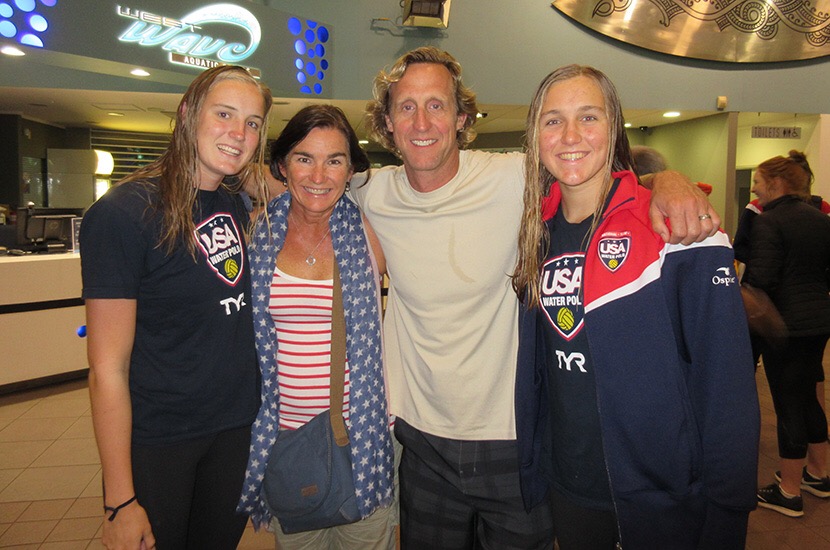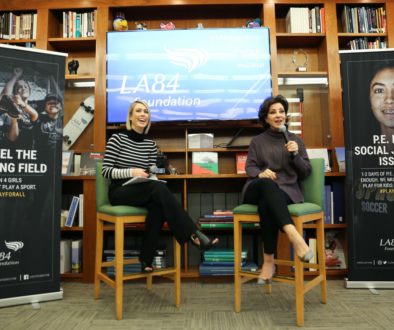Siblings Power USA Women’s Water Polo
Editor’s Note: An LA84 grant to the USC Annenberg Institute of Sports, Media and Society funded three reporters to attend, report and write stories from the 2017 FINA World Championships in Budapest, Hungary.
By Samuel Dodge
BUDAPEST — Talking to everyday folks on the docks of the Danube River, they talk about how great it is that their city doesn’t deal with tornadoes, hurricanes or any substantial natural disaster.
The only cataclysmic event in the venerable city in the last week was the seeming tidal wave of offense exhibited by a hyper-connected American women’s water polo squad in an 11-goal first half that buried their Russian foes on the way to the gold medal game of the FINA World Championships.
From in-your-face defense to crisp, precision passing, Team USA is connected, in position to win another World Championship on the heels of Olympic gold in Rio. With two sets of sisters on the team, with Jamie and Kiley Neushul swimming alongside Makenzie and Arla Fischer, you can maybe tell why they’re so cohesive.
“The previous regime,” said head coach Adam Krikorian, “built a foundation, a lot of which is centered around family. All of these girls carry that torch.”
While the whole team meshes, Jamie Neushul notices a difference in her sisterly relationship.
“We’re sisters so, yep, we bicker,” said Jamie Neushul. “With that said, there is a level of telepathy there.”
In a particular goal against Australia in the tightly contested quarterfinal, the American offense drew the defense to the right shade of the pool. With the ball in Kiley Neushul’s hand, she swiftly spotted her sister creeping in from the left, hitting her with a pass that led to an easy goal.

The American women owe much of this synergy to early development, evidenced by developmental national teams forming with players as young as 12, much like the one announced through the LA84 Foundation in the summer of 2016.
“We have a younger age average, for sure,” said Neushul. “It might be physical differences, but we’re ready to go earlier because our program commits to developing at younger ages.”
Take the Fischer sisters, for example.
With Makenzie as the center and Arla as the forward, they’ve been competing against each other since they were 10 and 8, respectively. They spent the better part of their childhoods in each other’s grills.
“We love tussling,” said Makenzie. “We’ve been doing it since I can remember.”
“I definitely prefer her playing for my team,” said Arla.
Each member of these sisterhoods now prepare differently. Kiley Neushul has played professionally for C.N. Sabadell in Spain since she graduated from Stanford, while Jamie trains with her club, Santa Barbara 805. Both the Fischer sisters will train at Stanford (it’s a powerhouse, people) upon returning from the World Championships.
Early development, however, is where the iron really sharpened iron.




